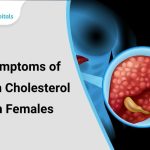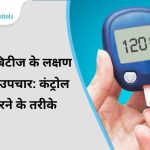Have you ever experienced a sudden, sharp chest pain that made your heart pound with fear, only to find out it was just a bout of gas? It’s a surprisingly common and terrifying experience. The symptoms of gas pain and a heart attack can be eerily similar, leading to unnecessary panic. But understanding the difference between gas pain and heart attack is crucial. Knowing what to look for can help you decide whether you need to reach for an antacid or call an ambulance.
The chest is a central hub for many vital organs, including your heart, lungs, and parts of your digestive system. When something goes wrong in this area, it’s natural to jump to the worst conclusion. Gas pain, caused by trapped air in your stomach or intestines, can manifest as sharp, cramping, or even a tight, pressure-like sensation in your chest. A heart attack, on the other hand, is a medical emergency that requires immediate attention. It’s caused by a blockage in a coronary artery, cutting off blood flow to the heart muscle. In this comprehensive guide, we’ll break down the key difference between gas pain and heart attack so you can be better prepared to handle either situation.
The Overlap: Why It’s So Confusing
The primary reason for the confusion is the shared location of the pain. Both conditions can cause discomfort in the chest area, and the type of pain can sometimes feel similar—a tight, squeezing, or stabbing sensation. This is why many people who experience gas pain end up at the emergency room, and sadly, why some people might dismiss a real heart attack as simple indigestion.
The key to distinguishing between the two lies not just in the location of the pain, but in its accompanying symptoms, duration, and how the pain changes with movement or other actions. Understanding the difference between gas pain and heart attack is a matter of paying attention to the details your body is giving you.
Understanding Gas Pain: Symptoms and Characteristics
Gas pain is a common, often benign, and temporary condition. It occurs when gas, produced during digestion, gets trapped in your digestive tract.
Symptoms and Characteristics of Gas Pain:
- Pain Location: Gas pain can occur anywhere in the abdomen, but it often localizes in the chest, particularly on the left side, mimicking heart pain. It can also be felt in the upper back and shoulder.
- Nature of Pain: The pain is often described as sharp, stabbing, or cramp-like. It can be a sudden, intense pang that comes and goes in waves.
- Associated Symptoms: Gas pain is typically accompanied by other digestive symptoms. You might experience bloating, a gurgling sensation in your stomach, belching (burping), or flatulence.
- Triggers: The pain often occurs after eating, especially after consuming gas-producing foods like beans, broccoli, cabbage, or carbonated beverages.
- Relief: A definitive difference between gas pain and heart attack is that gas pain can often be relieved by passing gas, belching, or changing your body position. Lying down on your stomach or on your side might help. Antacids or over-the-counter gas relief medications can also bring quick relief.
- Duration: The pain is usually short-lived, lasting from a few minutes to a couple of hours. It rarely persists for days on end without other digestive symptoms.
When you feel discomfort in your chest and it’s accompanied by these digestive signs, it’s a strong indication that you are dealing with gas.
Understanding Heart Attack Symptoms and Characteristics
A heart attack (myocardial infarction) is a serious medical emergency. It happens when blood flow to a part of the heart muscle is blocked, often by a blood clot. Without blood, the heart muscle begins to die.
Symptoms and Characteristics of a Heart Attack:
- Pain Location: Heart attack pain typically originates in the center of the chest. It can feel like a heavy pressure, squeezing, fullness, or a crushing sensation. The pain may radiate to other areas, including the left arm (most commonly), the jaw, neck, back, or shoulders.
- Nature of Pain: The pain is usually dull, constant, and persistent. It doesn’t typically come and go in waves like gas pain. It may worsen with physical exertion.
- Associated Symptoms: A heart attack is often accompanied by other severe symptoms. These include:
- Shortness of Breath: Feeling like you can’t get enough air.
- Cold Sweats: Breaking out in a cold, clammy sweat for no apparent reason.
- Nausea or Vomiting: Feeling sick to your stomach.
- Lightheadedness or Dizziness: Feeling faint.
- Weakness or Fatigue: A feeling of overwhelming tiredness that isn’t related to activity.
- Triggers: A heart attack can occur at any time, but it may be triggered by physical activity, emotional stress, or even at rest.
- Relief: The pain is not relieved by passing gas, changing position, or taking an antacid. This is the most crucial difference between gas pain and heart attack.
- Duration: Heart attack pain and its associated symptoms typically last for more than a few minutes and may get progressively worse over time.
Recognizing these symptoms is critical. When in doubt, it is always better to be safe than sorry.
Key Differences at a Glance
Let’s summarize the key difference between gas pain and heart attack to help you make a quick assessment:
- Cause: Gas pain is a digestive issue. A heart attack is a cardiac issue.
- Associated Symptoms: Gas pain comes with bloating, belching, and flatulence. A heart attack is accompanied by shortness of breath, cold sweats, and nausea.
- Nature of Pain: Gas pain is often sharp, stabbing, and comes in waves. Heart attack pain is a dull, crushing pressure that is persistent.
- Location of Pain: Gas pain can be anywhere, but heart attack pain is typically central and radiates to the arm, jaw, or back.
- Relief: Gas pain can be relieved by antacids, passing gas, or changing position. Heart attack pain is not relieved by these actions.
If you are experiencing any chest pain and are unsure of its origin, assume it could be a heart attack and seek immediate medical attention.
Treatment and When to Seek Help
Treatment for Gas Pain:
For mild gas pain, you can often find relief with home remedies.
- Over-the-Counter Medications: Medications containing simethicone can help break up gas bubbles. Antacids can also help if you have accompanying indigestion.
- Dietary Changes: Avoiding gas-producing foods can prevent future episodes.
- Movement: A short walk or a few gentle stretches can help move trapped gas through your digestive system.
Treatment for a Heart Attack:
A heart attack is a medical emergency. You should not try to self-treat.
- Call Emergency Services (Ambulance): Do not drive yourself to the hospital. Emergency personnel can provide life-saving care on the way.
- Chew an Aspirin (if advised): If you are not allergic to aspirin and have no bleeding issues, an ambulance dispatcher might advise you to chew a regular-strength aspirin (325 mg). Aspirin can help reduce blood clotting.
- Rest: Stay calm and rest until medical help arrives.
The most important part of understanding the difference between gas pain and heart attack is knowing that if there’s any doubt at all, it’s a medical emergency. Don’t wait. Time is muscle—the sooner blood flow is restored to the heart, the less damage is done.
Conclusion
While the symptoms can be frighteningly similar, there is a clear difference between gas pain and heart attack. By paying close attention to the nature of the pain, its associated symptoms, and how it responds to simple actions, you can make a more informed decision. Your awareness can be your best defense against a medical emergency.
If you are experiencing chest pain or any other worrying symptoms and are unsure what’s causing them, it’s always best to err on the side of caution. Don’t hesitate to seek immediate medical attention.
At Raj Hospitals, our team of expert cardiologists and emergency care specialists are equipped to handle any cardiac emergency. We prioritize rapid diagnosis and treatment to ensure the best possible outcomes for our patients. Knowing the difference between gas pain and heart attack is a powerful tool, but having access to professional medical care is your ultimate safety net.
FAQs
Q1: Can gas pain be as severe as a heart attack?
A1: Yes, gas pain can be extremely severe and sharp, and it’s this intensity that often leads people to mistake it for a heart attack.
Q2: Will a gas medication help a heart attack?
A2: No, a gas medication will not relieve a heart attack; if your chest pain does not improve after taking a gas medication, you should seek immediate medical help.
Q3: Is it possible to have both gas pain and a heart attack at the same time?
A3: Yes, it is possible to experience both at the same time, which is another reason why it’s crucial to seek medical attention for any unexplained or persistent chest pain.
Q4: Do the symptoms of a heart attack vary in men and women?
A4: Yes, while chest pain is the most common symptom for both genders, women are more likely to experience other symptoms like shortness of breath, nausea, and back or jaw pain.
Q5: Should I go to the emergency room for gas pain?
A5: If you are certain it is gas pain and it is relieved by medication or passing gas, you can manage it at home, but if there is any doubt about the cause of your chest pain, you should go to the emergency room immediately.
Q6: Can stress cause both gas pain and a heart attack?
A6: Yes, stress can cause digestive issues like gas and bloating, and it is also a major risk factor for heart disease and heart attacks, further complicating the symptoms.
.svg)









